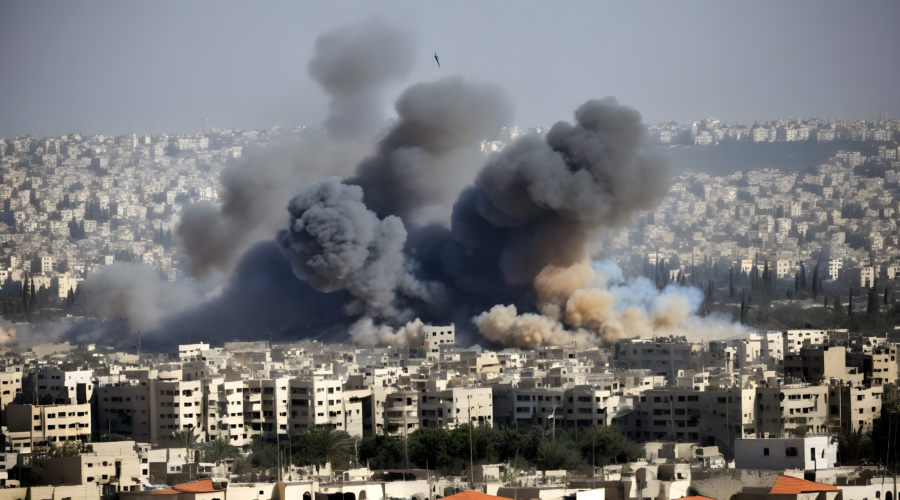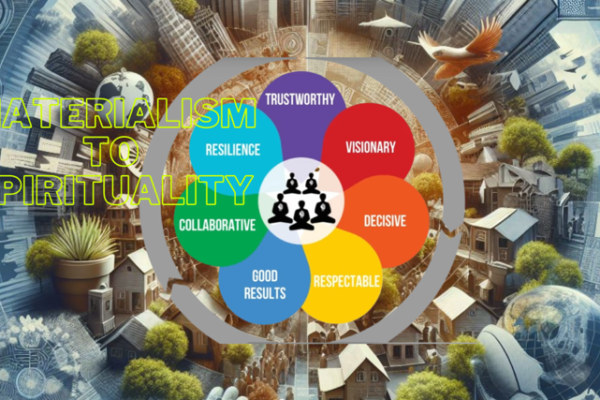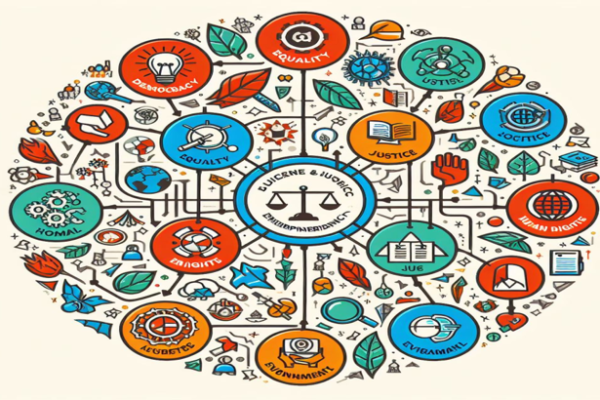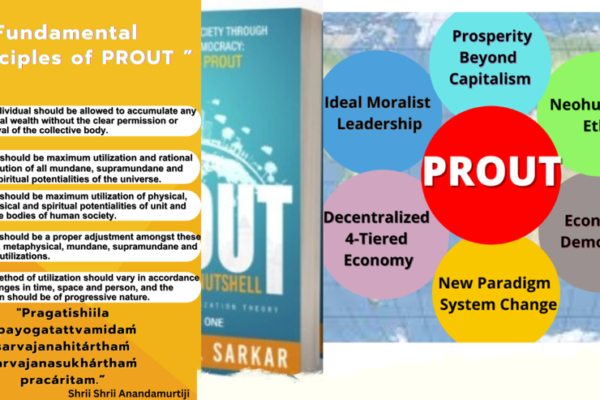– Dr. Hans-Joachim Rudolph, Microvita Research e.V.
Introduction
On October 7th, 2023, the Hamas terrorist organization invaded Israel and brutally massacred and attacked civilians in southern Israel. 1300 Israelis were murdered and hundreds were abducted into Gaza. Since then, the world is again looking spellbound at the Middle East.
In the preceding months, there had been fierce disputes in Israel over the distribution of power between the legislative and judicial branches. Today, various alliances are shaping the political scene, on the global stage major powers are staking out their spheres of influence, and in cyberspace a battle is raging for the attention of the general public.
Against this backdrop, we examine the strategies that create ever new degrees of complexity in a world of shifting alliances.
Alliances
Alliances between pro- and anti-Israel organizations have a long history, with those between Islamic organizations and the political left gaining particular prominence in recent times. Their roots go back to the era of anti-colonial movements and the Cold War.
During the era of European colonialism, many Muslim-majority regions were colonized by Western powers. In this period, leftist and nationalist movements found their common enemy in the respective colonial powers. After independence, many Muslim countries created alliances with leftist movements, integrating socialist ideologies into their national identity. During the Cold War, global politics were largely determined by ideological tensions between the Soviet Union and the United States. The Soviet Union supported secular socialist regimes in Muslim countries, which led to alliances between leftist governments and Muslim states. The Non-Aligned Movement, which included many Muslim-majority nations, played an important role, as its leaders often adhered to socialist ideas.
These alliances still have an impact on contemporary movements. Alliances forged during the Cold War continue to influence geopolitical dynamics. Issues of imperialism, interventionism, and global power structures remain central to alliances between the political left and Muslim organizations. Recently, we have even seen a renaissance of such alliances, expressed particularly in protests against Israel and the United States. Behind their demonstrations and slogans are a complex web of political goals and global ambitions. For example, the Indian writer, left-wing activist and globalization critic Arundhati Roy openly sided with Hamas during the 2021 Israel-Palestine crisis, defending its rocket attacks by referring to its right to resist. On the same ground, Swedish climate activist Greta Tunberg recently sided with Hamas.
The connection between leftist movements and Muslim organizations is often based on shared political goals that revolve around issues of social justice and resistance to perceived injustices. In this regard, their interests overlap in numerous areas: In addition to the aforementioned anti-colonialism and anti-imperialism, there is also a long history of solidarity with Palestine. Both share a concern for the rights and self-determination of the Palestinian people. Events in the Middle East, especially those related to Israel, often led to joint protests. Other common concerns include opposition to military intervention, human rights abuses, and the protection of individual freedoms. Finally, opposition to discrimination plays an important role, with shared experience of discrimination, whether based on religion, ethnicity, or other identity markers, fostering collaboration.
Internal Israeli Conflict
In Israel, the Supreme Court reviews the legality of laws, regulations, and decrees. The country has no second chamber, and instead of a written constitution, there is only a collection of basic laws that together form a kind of constitution. Therefore, the Supreme Court has an essential supervisory function in limiting government decrees. The planned restructuring of the legal system is aimed primarily at weakening the country’s judiciary and strengthening the power of the government and parliament. The government under Prime Minister Benjamin Netanyahu accuses the Supreme Court of interfering too much in political decisions.
After massive protests, Netanyahu initially halted the judicial reform in March 2023, but put it back on the agenda in June in a weakened form. The reform now consists of a large number of individual laws. This allows the government to push the reform through piece by piece. A key part of the reform is the abolition of the adequacy clause, which has already been approved by Parliament.
For months, there have therefore been demonstrations all over the country with tens of thousands of participants. Demonstrators occupied highways, universities announced a temporary halt to classes, and army reservists did not show up for duty. The port of Haifa was also blocked. The protest movement is one of the largest in Israel’s history and encompasses broad sections of society. Former head of government Ehud Barak wrote in a guest editorial in the newspaper Haaretz that Israel is in the most serious crisis of its history. The country is on the verge of becoming a “de facto dictatorship,” he said. At its core is the question of whether or not the legislative branch can be controlled by the judicial branch, as it has been the case in the past.
Recently, the security agencies’ warnings to Prime Minister Netanyahu have been addressed, raising the question of whether these internal tensions had affected Israel’s resilience: Literally, “Prime Minister Netanyahu was warned repeatedly by the heads of the intelligence services and the army from mid-March until a few days before the attack on 07 October 2023 that our enemies could exploit the situation as an absolute bottom and the greatest weakness in the history of the Israel Defense Forces“ (Ronen Bergman, Israeli investigative journalist and author).
Diverging Interests of the Great Powers
While on the one hand local actors negotiate their strategies for conflict resolution, a global game is forming in the background. The great powers, above all the USA, Russia, and China, are pursuing their own interests in the Middle East. The United States, traditionally an ally of Israel, seeks to contain hostilities and promote unilateral solutions. Russia and China, on the other hand, appear to have an interest in escalation, whether as a distraction from domestic problems or as a means to expand their influence in Ukraine and the South China Sea, respectively, and especially in Taiwan.
In the UN, both a U.S. draft resolution and a Russian proposal failed to pass a vote in the Security Council. The U.S. draft called for an end of violence to allow aid deliveries. Russia and China vetoed it, and the United Arab Emirates also voted against it. Ten other members voted in favor of the draft. The Russian proposal for a humanitarian cease-fire failed due to a veto from the United States and the United Kingdom. Only Russia, China, the United Arab Emirates, and Gabon voted in favor, while nine members abstained. That draft resolution included a call for a humanitarian cease-fire. It also condemned both the Oct. 7 attacks by Hamas and attacks by Israel on civilians in the Gaza Strip.
On Oct. 18, 2023, U.S. President Biden visited Israel, and on Oct. 26, 2023, Hamas representatives were received at the Foreign Ministry in Moscow. Most recently, the president of the NATO country Turkey, Recep Tayyip Erdoğan, sided with Hamas stating that he doesn’t consider Hamas as a terrorist organization but as a liberation army fighting for its territories and people.
Strategies for Coping with Conflicts
This year’s Frankfurt Book Fair will be remembered not only as a venue for literary discussions, but also as a stage for the different strategies in coping with the war against Hamas. Leading proponents were the Slovenian philosopher Slavoj Žižek on the one hand and the Israeli-German educator Meron Mendel on the other. They expressed profoundly different views on the Middle East as well as the desired role of the world community.
While Žižek insisted on the importance of contextualization and a continued willingness to engage in dialogue, Mendel stressed the need to strengthen internal unity to counter any external threats. These statements show how divergent strategies – from contextualization and readiness for dialogue to deterrence and readiness for violence – fiercefully compete with each other.
Constructive dialogue in the midst of strong emotions and differing perspectives is certainly a challenge. Key conditions include empathy, active listening, and the recognition of the subjective nature of individual experiences. It is crucial to be committed to respectful and open dialogue promoting mutual understanding and the exchange of diverse perspectives.
To facilitate meaningful discussions, one should focus on specific problems, recognize common grounds, and acknowledge the complexity of geopolitical conflicts. Conversations should be conducted with a willingness to learn, avoiding simplifications and respecting differing points of view. If it is noticed that conversations become unproductive, breaks can be taken and discussions resumed when tempers have calmed.
Although participating in adversarial conversations can be challenging, it is an effective way to promote mutual understanding. The goal is not necessarily to persuade, but to foster respect and understanding for one another and to recognize that perspectives evolve slowly and gradually over time. It must be remembered, however, that there are narrow limits to this strategy. To illustrate, just consider the following situation, which could occur anywhere in Germany:
Imagine three students, a Turk, a Russian and a German, in a schoolyard in Germany. The Turk hits the Russian. The Russian falls to the ground, gets back up, shakes himself, and then punches the Turk. The Turk gets up, shakes himself and hits the German. The German falls down, gets up and walks away. The next day, the same game in a different order: the Russian punches the Turk. The Turk falls to the ground, gets up again, shakes himself and hits the Russian. The Russian falls down, gets up again, shakes himself and hits the German. The German falls down, gets up again and then says: “okay, guys, now we have to talk“.
The example shows that the willingness to engage in dialogue can be counterproductive under certain circumstances. In times of heightened tensions, more forceful measures may be necessary with less emphasis on negotiations – both on a small and large scale. Then, the priority might be more to address immediate security concerns, and work toward an end of violence. In addition, deterrence can be a key element in conflict resolution. The idea is to deter adversaries from taking certain actions by driving up costs.
In the realm of military and strategic planning, deterrence can include several elements, such as the persuasive communication of possible consequences, a commitment to robust responses to aggressions of any kind and the threat of credible firepower. Although deterrence is an important tool for preventing conflicts, it also presents its own challenges, and its effectiveness can vary depending on the specific context and actors involved.
Deterrence, however, refers not only to military strength, but also to the resilience of a society as a whole. This includes factors such as economic stability, political and social cohesion, and the ability to respond effectively to various challenges, whether external threats or internal crises.
Promoting a resilient and cohesive society requires addressing a range of issues, including reducing social inequalities and economic disparities and developing robust institutions. This also involves fostering a sense of national unity among the population.
The situations addressed here illustrate the complex interplay between internal and external threats. Social unrest and internal tensions can reduce the stability of a society and affect the country’s ability to deal with external challenges. In particular, the aforementioned debates can lead to internal divisions. External actors such as the Hamas can then see this as an opportunity to exploit the conflict in their favor.
Current Events
Regrettably, nothing that has been said so far had been able to prevent the current reign of brute force. Offers of talks were rejected, diplomatic efforts only served to strengthen own alliances, and at present the conflicting parties are striving for nothing less than the complete annihilation of each other. In this situation, we have no choice but to watch from the sidelines, waiting for the time when civil action guided by neo-humanist ideals is called for again. Until then, we should keep a clear head and open mind, disallowing ourselves to get polarized by the running media campaigns. In times of fake news and infowar, even this is a challenge. But we can be sure that our spiritual practices will be of great help in this regard.
Conclusions
In a world marked by intricate alliances, internal disputes, and conflicting interests among major powers, the Middle East conflict takes center stage again in global affairs. The alliance between Islamic organizations and the Western political left raises questions transcending the Middle East’s borders, influencing the global balance of power.
Israel’s internal conflict underscores that a nation’s resilience hinges not only on military strength but also on internal unity. Strategies for conflict management, from dialogue to deterrence and the use of force, reflect the complexity of the whole scenario. Amidst this complexity, cyberspace emerges as a critical arena where the involved powers weave narratives and advance their agendas.
Hopes for a sustainable peace settlement persist, even amid bleak current developments. While challenges loom large, the recognition that change is incremental and requires dialogue, understanding, and respect paves the way toward a better future.





